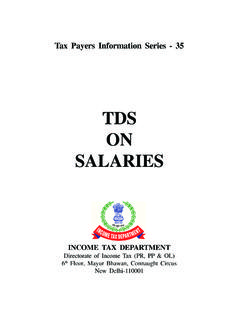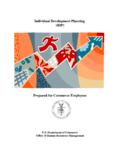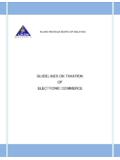Transcription of PROPOSAL FOR EQUALIZATION LEVY
1 PROPOSAL FOR. EQUALIZATION levy . ON. SPECIFIED TRANSACTIONS. (Report of the Committee on Taxation of E- commerce ). PROPOSAL FOR EQUALIZATION . levy ON SPECIFIED. TRANSACTIONS. (Report of the Committee on Taxation of E- commerce ). February, 2016. Prepared by the Committee on Taxation of E- commerce formed by the Central Board of Direct Taxes, Department of Revenue, Ministry of Finance, Government of India 1|Page 2|Page CONTENTS. Section 1 Constitution and Mandate of the Committee Section 2 Digital Economy: Current status and Growth Prospects Section 3 Tax Challenges from Digital Economy & Action 1 in BEPS. Issues related to Tax Neutrality between Domestic &. Section 4. Multi-National Enterprises and their Implications Principles for Allocating Taxing Rights, Factors that Section 5 contribute to Profitability & Historical Review of Existing Rules Broader Tax Challenges related to Nexus and Section 6 Characterization of Income from Digital Transactions and common Disputes Issues related to Value of data & User Activity in Section 7.
2 Multidimensional Business Models Recent International Literature on Taxation of Digital Section 8. Economy Enterprise Options to address broader tax challenges of Digital Section 9. Economy in the Indian Context Section 10 Characteristics of the Proposed EQUALIZATION levy '. Section 11 Conclusions & Recommendations of the Committee 3|Page Executive Summary The Committee on taxation of E- commerce examined the tax issues arising from the new business models employed in the digital economy, in particular issues relating to tax nexus rules under existing law and tax treaties, characterization of payments made for services and facilities provided primarily through digital means and issues related to valuation of data and user contribution in profits of digital enterprises. The Committee took cognizance of the Report on Action 1 of Base Erosion & Profit Shifting (BEPS) Project, wherein very significant work has been undertaken for identifying the tax challenges arising from digital economy, the possible options to address them and constraints likely to be faced.
3 The Committee also notes that this report has been accepted by G-20 countries, including India and OECD, thereby providing a broad consensus view on these issues. The Committee took note of the work done in this field by other experts, as well as the lack of uniformly accepted standards in taxation of royalty and fee for technical services, and the resultant tax disputes. The Committee also took note of the divergent approaches to characterization of such income taken by the taxpayers, tax authorities and appellate authorities, and the litigation arising from such inconsistencies. The Committee acknowledges the need for addressing all these issues in a holistic manner. The Committee notes that the BEPS Report on Action 1 clearly brings out that the physical presence nexus in existing international taxation rules, which were developed in the last century keeping in view the business models of that time, provided a reasonable nexus test for identifying significant participation of a traditional brick & mortar enterprise in the economic life of a jurisdiction.
4 However, with the evolution of new business models in digital economy, where revolutionary technological developments have made the need for physical presence redundant, it is no more a justifiable indication of nexus. The BEPS Report also brings out very clearly the challenges that are faced in characterizing the payments for digital goods and services, which are likely to be faced more often by countries like India, which opt for taxation of royalty and fee for technical services in the source jurisdiction. Lastly, the BEPS Report also recognizes the new issues that have emerged in respect of multidimensional business models, like valuation of data belonging to residents of source jurisdiction and the user contributions to the profitability of enterprises, both for the purpose of determining nexus and attributing profits. The Committee notes that the ability of multinational enterprises to avoid taxes completely in the source jurisdiction under the existing rules, poses significant challenges and concerns for countries like India.
5 The unfair advantage enjoyed by them over their Indian competitors can make Indian enterprises, both digital as well as brick & mortar ones, relatively less competitive 4|Page in the long run, resulting in detrimental impact on growth of Indian enterprises. Further, their ability to avoid payment of taxes in India can also adversely impact revenue collections, and lead to a rising tax burden on Indian enterprises and Indian citizens that could be even more detrimental to Indian economy as a whole. Thus, the Committee considers that there is a need for addressing these issues without any further delay. The BEPS Report on Action 1 clearly highlights the need for modifying existing international taxation rules, and identifies three options, a new nexus based on significant economic presence, a withholding tax on digital transactions, and EQUALIZATION levy .
6 The Report elaborates in detail the characteristics of these options and their possible tax design. The Report does not recommend any of these options at this stage, in view of the work that may be required in the area of attribution of profits, but concludes by recognizing the right of any country that may wish to adopt any of these options, either under its domestic law or in its bilateral tax treaties. After examining the three options identified in the report, the Committee notes that compared to the first two options, a new nexus based on significant economic presence and the withholding tax on digital transactions, which would require changes in a number of tax treaties, the third option of EQUALIZATION levy ' provides a simpler option that can be adopted under domestic laws without needing amendment of a large number of tax treaties. Accordingly, the Committee recommends the adoption of this option to address the tax challenges of digital economy and provide greater certainty and predictability in its taxation.
7 The EQUALIZATION levy imposed on the payment for digital transactions, would not be a tax on income, and hence would not be covered by tax treaties. As EQUALIZATION levy is not proposed as tax on income, it would need to be imposed outside the Income-tax Act, 1961. The Committee proposes that the EQUALIZATION levy may be imposed on specified digital services and facilities including online marketing and advertisements, cloud computing, website designing hosting and maintenance, digital space, digital platforms for sale of goods and services and online use or download of software and applications. The Committee recommends that only payment exceeding Rs. one lakh made by a person resident in India or a permanent establishment of a non-resident person to a non-resident enterprise be covered by this levy , which may be charged at a rate between 6 to 8 % of the gross payment made for specified services.
8 Such a threshold will keep almost all B2C transactions, as well as a very large number of B2B transactions outside the scope of the EQUALIZATION levy , thereby limiting its impact. The Committee notes that income arising from payments subjected to EQUALIZATION levy should not be subjected to income-tax, and hence proposes that income from transactions that are chargeable to EQUALIZATION levy , and on which such levy is paid, may be exempted from income-tax. The Committee considered different options for ensuring compliance, and came to 5|Page a view that it can be done by way of deduction of EQUALIZATION levy by the payer, but such obligation should be limited to only those payers who wish to claim that payment as a deductible expense for determining taxable profits in India. Committee also notes that deduction by payment gateways and by authorized foreign exchange dealers can significantly reduce the obligations on payers, and strongly recommends that work should be initiated for exploring this possibility.
9 The Committee also recommends that reporting obligations for EQUALIZATION levy may be kept simple with facility of filing return being made available online. The Committee also acknowledges the need for continuously monitoring further developments in digital economy as well as further developments in international taxation rules. 6|Page Section 1. Objective of the Committee's Work Introduction 1. With expansions of information and communication technology, the supply and procurement of digital goods and services has undergone exponential expansion everywhere, including India. It has also made it possible for the businesses to conduct themselves in ways that did not exist earlier, and given rise to new business models that rely more on digital and telecommunication networks, do not require physical presence, and derive substantial value from data collected and transmitted through such networks.
10 These new business models have also created new tax challenges in terms of nexus, characterization and valuation of data and user contribution. These challenges have been recognized by the international community, leading to their inclusion in the Base Erosion and Profit Shifting (BEPS) Project endorsed by G-20. and OECD. The findings and conclusions of Action 1 of this Project aimed at addressing these challenges, resulted in the publication of a detailed Report in September 2015 that has since been accepted and endorsed by the G-20 and OECD and thus provides a broad international consensus on these issues. 2. The issue of characterization of payments related to digital goods and services, and the inherent ambiguities therein, have been universally recognized as a challenge. These issues are faced more commonly by countries like India, which have included provisions that allow taxing rights to the source jurisdiction to tax royalty and fee for technical services in their tax treaties, and thereby have a difference in position with the OECD in respect of these provisions.

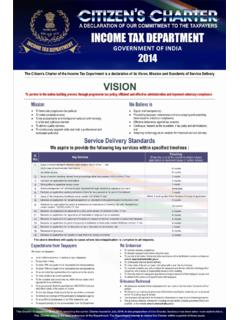

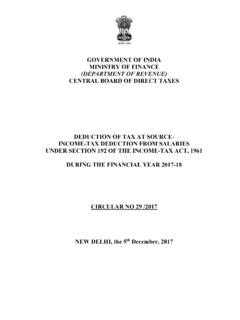


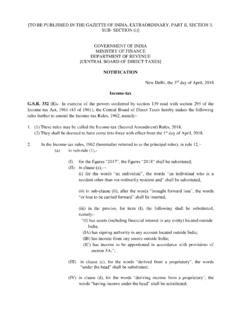
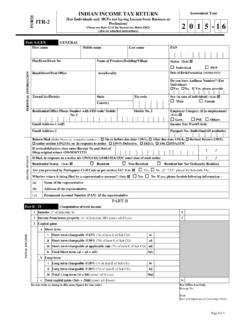
![FORM NO. 3CA [See rule 6G(1)(a)] Audit report …](/cache/preview/5/e/9/7/6/b/7/4/thumb-5e976b74d05a63207c471fc48a86f3e5.jpg)
